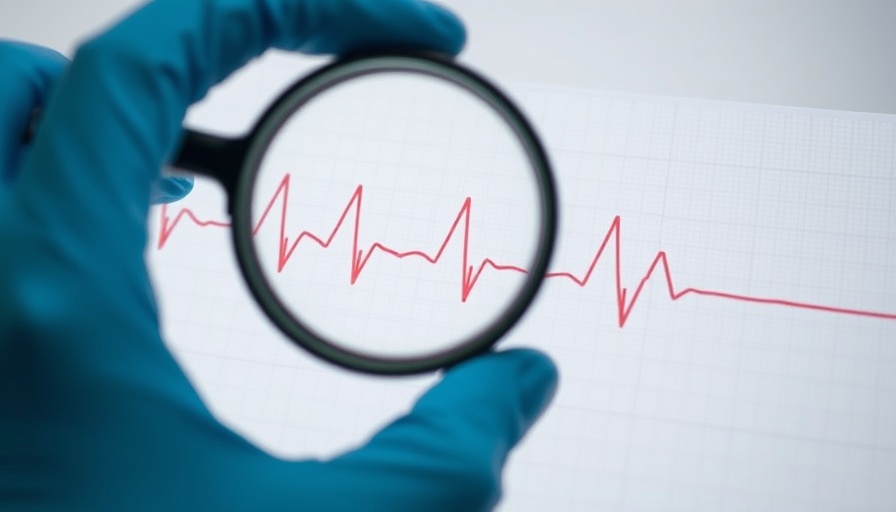
Understanding Remote ECG Screening: A Modern Approach to Heart Health
A recent study highlights the increasing use of remote ECG screening technologies to detect atrial fibrillation (AF), a condition that can lead to serious health issues, including stroke. The findings indicate that while the increase in AF detection via these methods is modest, it represents a significant step towards more proactive heart health management.
The Benefits of Detecting Atrial Fibrillation Early
AF often goes unnoticed, making early detection crucial for prevention. Regular screening can empower homeowners aged 30-65—especially those who have risk factors like high blood pressure or a family history of heart issues—to take charge of their heart health. Knowing one’s cardiac rhythms can lead to timely interventions and, consequently, improve long-term health outcomes.
How Remote ECG Screening Works
Remote ECG devices, typically worn as wearable tech, continuously monitor heart rhythms, alerting users and their healthcare providers to any irregularities. This technology adds convenience as it allows individuals to check their heart health without frequent visits to the doctor. Whether it’s a portable device or an app connected to your smartphone, the ease of access can encourage more people to utilize these screening tools.
Social Connection: Why This Matters to You
In today’s fast-paced world, prioritizing health often takes a backseat. However, understanding and utilizing remote ECG screening technology not only contributes to individual well-being but also fosters a community of health-conscious individuals. Sharing experiences and results can bring friends and family together in their journey towards better health, emphasizing the notion that everyone is in this together.
The Landscape of Heart Health Technology
The emergence of remote ECG devices represents a broader trend in healthcare towards personalized and preventive medical practices. As technology evolves, these devices will likely become more sophisticated, providing real-time data analytics that help patients and healthcare providers make informed decisions regarding treatments and lifestyle changes.
Counterarguments: The Limitations of Remote Screening
While the shift towards remote ECG screening is promising, critics argue about its efficacy. Some medical professionals caution that these devices may not replace traditional monitoring standards. There can be false positives or false negatives that might lead to unnecessary anxiety or complacency. As with any medical technology, it’s important to complement screen results with professional medical advice.
Future Insights: The Role of Telemedicine in Heart Health
With the integration of telemedicine, remote ECG screening is positioned to play a pivotal role in regular health check-ups. Patients can interact with healthcare providers, share data, and receive tailored advice without needing an office visit. This can be particularly beneficial in rural areas or for individuals with mobility issues who might otherwise delay seeking support due to travel or time constraints.
Take Action: Know Your Heart, Know Your Health
As you reflect on this technology's role in heart health, consider how remote ECG screening could fit within your lifestyle. With modest increases in AF detection, the potential for improved preventive care is significant. Whether you’re a tech-savvy individual or someone hesitant to embrace new medical technologies, understanding these developments is crucial.
Take proactive steps by consulting your healthcare provider about how remote ECG screening could benefit you. Being informed is the first step towards making healthier choices that can enhance your quality of life.
 Add Row
Add Row  Add
Add 



Write A Comment